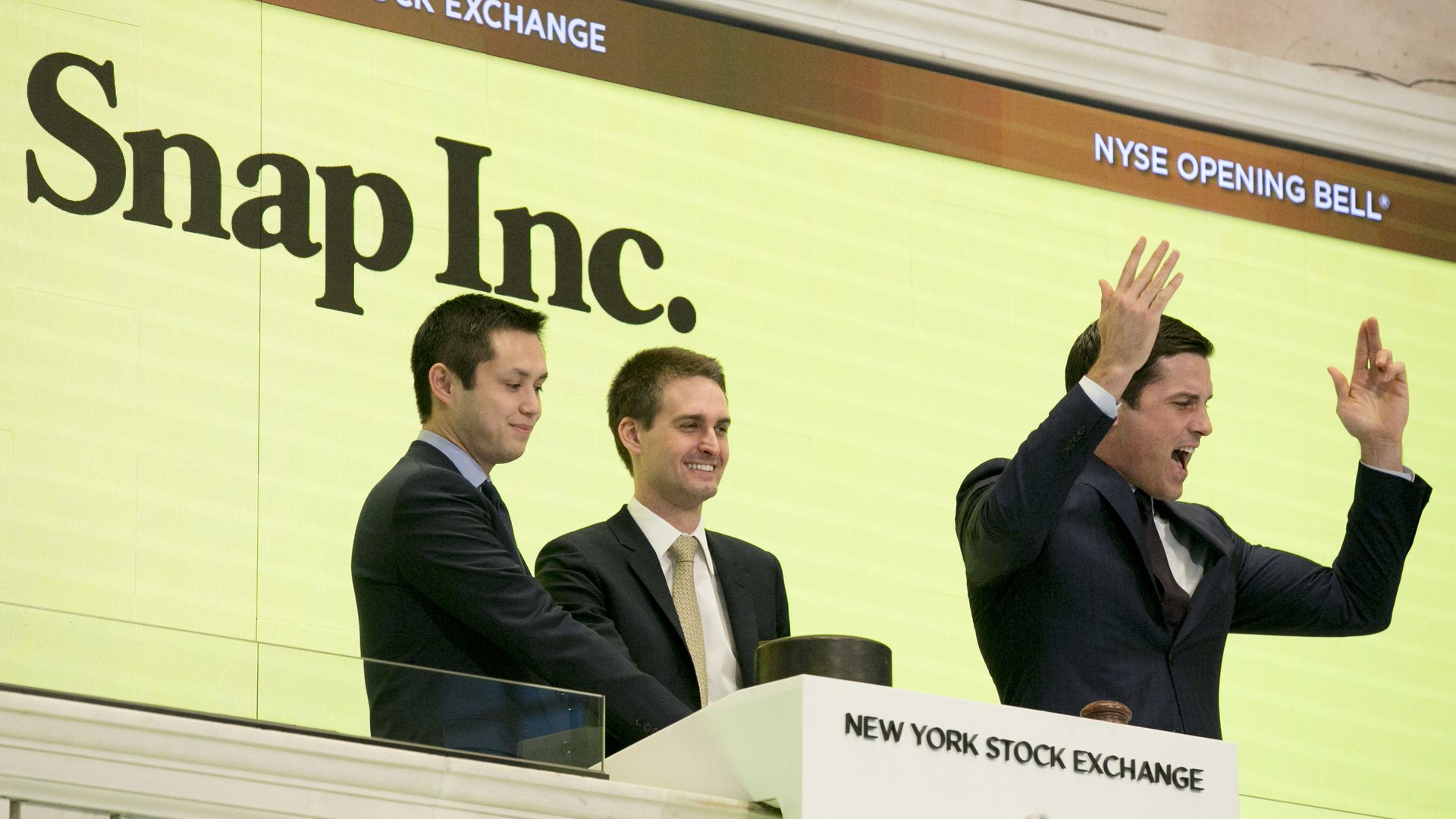The tech IPO window is wide open, and Silicon Valley is rushing to cash in
Tech investors, after weathering an IPO winter since 2015, are finally enjoying the spring thaw.


Tech investors, after weathering an IPO winter since 2015, are finally enjoying the spring thaw.
The first quarter of 2017 saw seven tech companies go public, but the total funds raised, at more than $4 billion, soared to the highest point since at least 2014—roughly 10 times higher than the same period last year and well above recent averages, reported Dow Jones.
Most of that cash went to the social media darling Snap, which pulled in $3.4 billion, the largest tech IPO since Alibaba in 2014, followed by the business software companies Mulesoft ($221 million) and Alteryx ($126 million). The warm welcome by public investors spurred 11 tech companies so far this year to list themselves, including Appian, Carvana, Cloudera, Elevate Credit, Netshoes, Okta, Veritone, and Yext.
“These are very strong conditions to go public,” said Kathleen Smith, a principal at the IPO-focused financial advisory firm Renaissance Capital. “The only reason you wouldn’t go public is you’re concerned you wouldn’t get a public valuation to match the private valuation.”
Many private startups have raised huge sums of money at valuations exceeding a billion dollars including Airbnb, Uber, Palantir, WeWork, and Dropbox. A few, such as Spotify, have raised funding under potentially onerous terms, giving private investors an increasing number of shares the longer it waits to IPO. Financing terms at the payments company Square guaranteed late-stage investors a share price of $18, a condition that cost early investors dearly when the company when public last November at about $9 per share.
That’s turning the pressure up for startups to deliver the numbers that will justify their sky-high valuations before the climate for going public turns chilly once again.